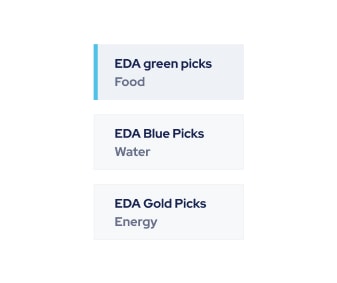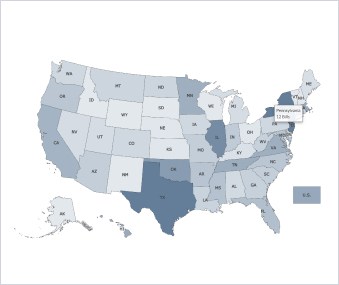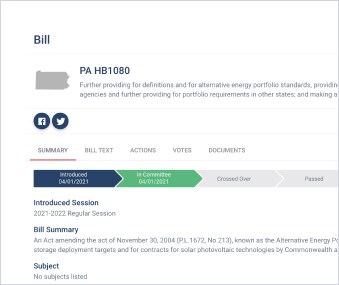GUIDE TO STATE LEGISLATIVE TRACKER
Identifying State bills for resource democracy

Population growth, declining resources, biodiversity loss and climate change have left people feeling betrayed by elected officials, and uncertain of their future. This is why many have lost faith in representative democracy and why popular interest in participatory democracy is increasing.
The world is in the early stages of a power struggle for corporate and sovereign control of the common resources that rightfully belong to everyone. EDA believes that both representative and participatory democracy are necessary during this turbulent period to address the growing environmental degradation and lack of material resources.
We can prevent ecological and social calamity by creating decentralized decision-making for the public ownership of our commons.
This requires that the centralizing power that governments have given over to corporations be vested back into the hands of citizens to generate resource democracy.
This is why EDA searches all of the bills in State legislatures that are currently in session to bring you the latest bills for food, water and energy. Our goal is to provide you with a short list of the best of these bills. They are carefully selected by EDA from thousands of bills across the country to ensure that they are equitable, sustainable and regionally applicable.
We’ll help you stay on top of model legislation and solutions for resource cooperation and resilience, while training you to advocate for these trailblazing bills with your representatives. And our database is free to use!
What’s In It For You?
- Find out what’s taking place in your State on issues of interest to you
- See what’s going on in other States
- Organize your own advocacy for a specific bill or issue
- Explore out of curiosity

How to Use This tracker

In the tab selector to the left of the map, choose among EDA Green Picks (Food), EDA Blue Picks (Water) or EDA Gold Picks (Energy)

Click a State on the map for legislation on your issue

A list of current bills appears for the State selected, including the name of the bill, the summary and who sponsored it.

For more information, click on Detail. The Detail link will take you out of the EDA website. To return to EDA, simply “X”out of the Detail section on your browser.
Note: If you can’t find a bill in your State, it may
mean that your legislature is not in session now
Our other programs
Sign up for our newsletter
EDA News is a quarterly publication that includes updates on our activities, feature stories, events, comments from members and reviews of articles from other sources. Read back issues of the newsletter.
